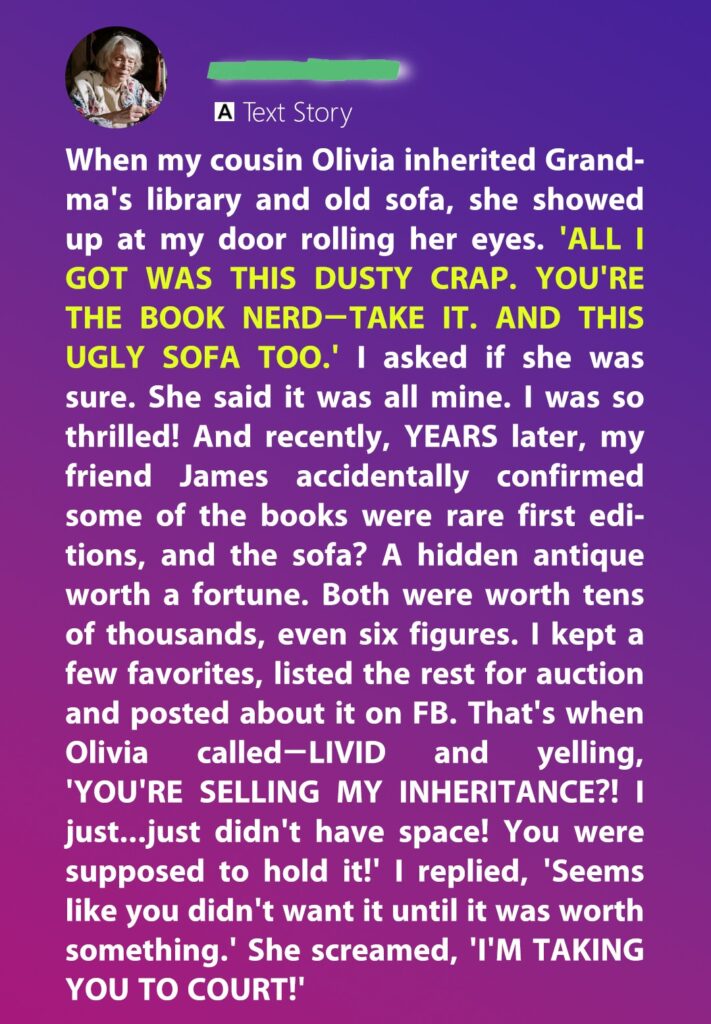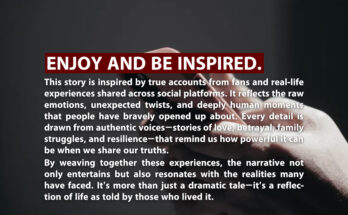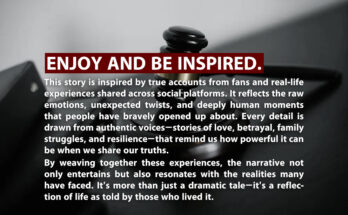When Grandma Eleanor passed, she left behind a lifetime of memories: a floral-print sofa she’d reupholstered herself and a towering library of rare books. My cousin Olivia, the official heir, dismissed it all as worthless clutter. She showed up at my door, blazer still buttoned, and said, “Take this junk. I don’t want it.” I asked twice if she was sure. She insisted.
I moved the sofa into my tiny duplex and stacked the books along my walls. I lit a lavender candle in Grandma’s honor and read every night. Four years later, I discovered a first edition of Leaves of Grass—1855. Then a signed Virginia Woolf. I called James, an antique appraiser. He confirmed: the books were worth tens of thousands. The sofa? A Louis XVI-style canapé, possibly six figures.
I kept Grandma’s journal and her copy of Jane Eyre with a pressed daisy inside. The rest went to auction. I posted about it online, and Olivia called instantly—furious. “That’s MY inheritance!” she screamed. “You were supposed to hold it!”
I reminded her: “You gave it to me. You called it crap.”
She threatened court. I panicked—until my best friend Molly sent me a video she’d filmed the day Olivia dumped the items on me. In it, Olivia says, “I’m giving you this junk. Just take it.” Her tone? Crystal clear.
Our lawyer, Renee, watched the footage and smiled. “This proves intent. She gave it to you freely.”
In court, Olivia played the victim. “She’s profiting off my grief,” she said. I handed the judge the flash drive. He watched, then dismissed the case. “She gave the items willingly. Case closed.”

Grandma’s legacy wasn’t just valuable—it was vindicating. Olivia saw only dust and mildew. I saw history, love, and a quiet kind of justice.


